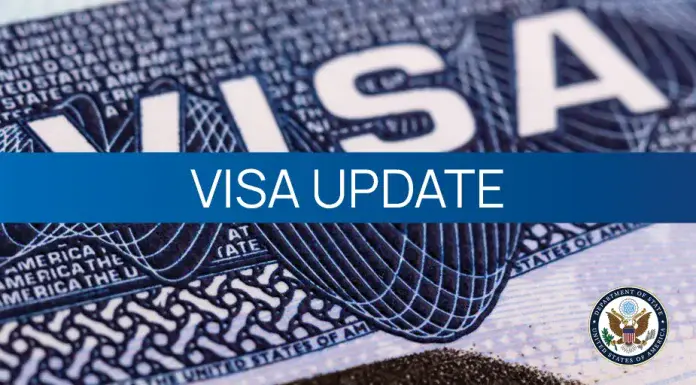President Donald Trump’s new $100,000 application fee for H-1B visas threatens to sever a crucial pathway for Ghana’s technology professionals seeking opportunities in the United States, potentially accelerating brain drain challenges already costing the country millions in human capital investment.
Trump signed the executive order on Friday imposing the hefty fee on H-1B visa applications, describing the measure as necessary to ensure only “great workers” enter the United States while deterring what his administration characterizes as program overuse.
The policy directly impacts Ghana’s growing technology ecosystem, where professionals have traditionally leveraged H-1B visas to secure positions in American firms before returning with enhanced skills and capital. Approximately 70,000 skilled professionals leave Africa annually, with Ghana contributing significantly to this outflow across technology, healthcare, and engineering sectors.
The proclamation also establishes a “Trump Gold Card” program requiring $1 million investments for permanent residency, creating what critics describe as a two-tier system favoring wealthy applicants over merit-based selection criteria.
Ghana’s technology sector faces particular vulnerability under the new framework. Local software engineers, data analysts, and Information Technology (IT) specialists have historically used H-1B positions to gain international experience while sending remittances home, contributing an estimated $4.2 billion annually to the country’s economy through diaspora transfers.
The $100,000 fee represents approximately 15 times the average annual salary for technology professionals in Ghana, effectively pricing out individual applicants unless corporate sponsors absorb costs. This shift could limit opportunities to multinational companies with substantial budgets rather than emerging Ghanaian talent seeking career advancement.
Recent analysis indicates Ghana’s brightest scholars face compelling reasons not to return after excelling abroad, including competitive salaries, access to cutting-edge technology, reliable funding and clear career ladders, challenges the visa fee could exacerbate.
Healthcare professionals represent another vulnerable group, with Ghanaian doctors and nurses already struggling to access international opportunities amid global demand for medical expertise. The additional financial barrier could further limit their mobility while healthcare systems worldwide compete for skilled practitioners.
However, some analysts suggest the policy might inadvertently benefit Ghana’s domestic development objectives. Ghana allocated 4.5% of its national budget in 2023 toward creating incentives for professionals to remain in the country, including improved salary packages and research funding, efforts that could gain effectiveness as alternative pathways become more expensive.
The government’s Digital Ghana Agenda and investment in Information and Communication Technology (ICT) training programs may require acceleration to absorb talent previously destined for American markets. This could strengthen local innovation capacity while reducing dependency on foreign opportunities for career advancement.
Trump’s broader immigration strategy includes enhanced enforcement measures and restrictions targeting legal immigration pathways that have traditionally served developing countries’ professional classes. The policy constrains a key path to legal immigration widely used in Silicon Valley, affecting technology hubs globally that supply talent to American companies.
The H-1B program allocates 65,000 visas annually, plus 20,000 reserved for advanced degree holders, with applications typically far exceeding available slots and requiring lottery selection. The new fee structure could reduce application volumes while generating substantial revenue for government operations.
For Ghana, the challenge involves balancing brain drain concerns with legitimate professional development opportunities that enhance the country’s global competitiveness. The visa fee represents another obstacle in efforts to transform temporary migration into permanent brain gain through returnee investment and knowledge transfer.
Industry observers expect corporate sponsorship to become increasingly important as individual applications become financially prohibitive. This could favor established multinational companies over smaller firms and startups that have traditionally provided entry points for African professionals in American markets.
The policy’s long-term impact will depend on whether alternative destinations such as Canada, the United Kingdom, and European Union countries adjust their immigration policies to attract talent diverted from American pathways, potentially reshaping global migration patterns for skilled workers.
As Ghana continues developing its domestic technology sector and healthcare infrastructure, the reduced access to American professional development opportunities may necessitate stronger partnerships with institutions offering comparable training and career advancement within Africa or alternative international markets.

